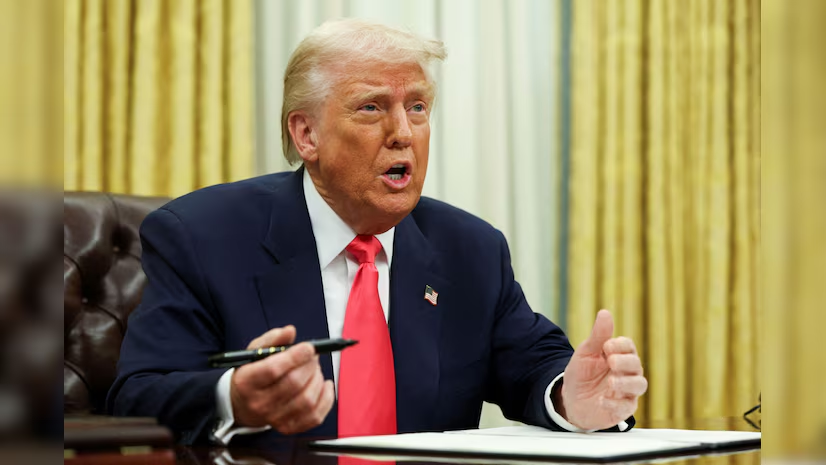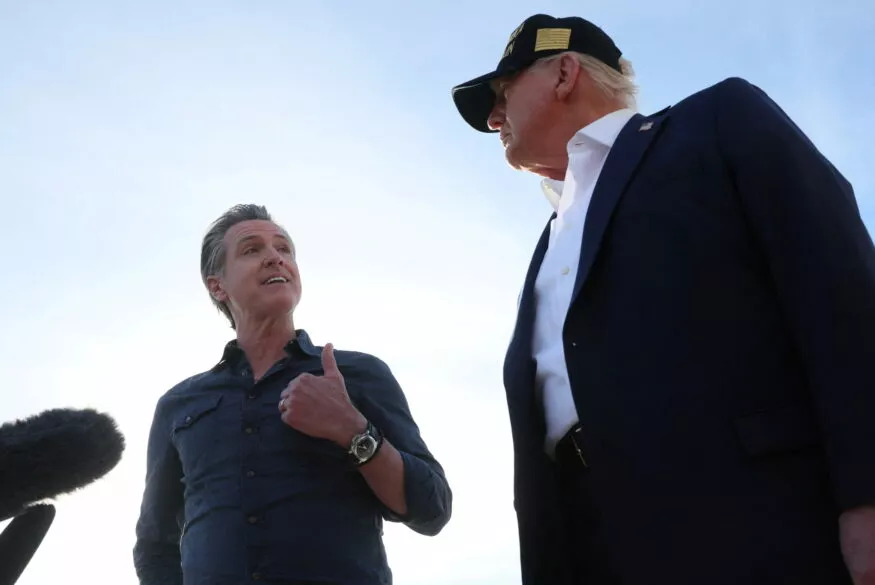The Right Doubted Amy Coney Barrett. Then She Delivered Trump’s Biggest Legal Victory
Justice Amy Coney Barrett has spent much of the past year under scrutiny from the right. Once hailed as a generational judicial appointment by President Donald Trump, Barrett began drawing fire from some conservatives who accused her of abandoning the ideological principles that earned her nomination. Critics dubbed her a “DEI hire,” a not-so-subtle jab at what they perceived as decisions that leaned too moderate or failed to push back hard enough against progressive legal trends.
But in a stunning turn, Barrett is now being celebrated for delivering what many are calling the Trump administration’s most significant legal win at the Supreme Court. In the case of Trump v. CASA, Inc., Barrett authored the majority opinion in a 6-3 ruling that dealt a serious blow to the power of lower courts to issue sweeping nationwide injunctions.
Her opinion marked a decisive victory for conservatives, restoring a more limited judicial role and paving the way for the broader enforcement of executive actions—especially those aligned with Trump-era policies.
The case centered on an executive order from the Trump administration aimed at restricting birthright citizenship for children of noncitizens. Lower courts had blocked the measure using nationwide injunctions, effectively halting its implementation. Barrett’s ruling did not directly resolve the constitutional questions surrounding the order itself, but it fundamentally reshaped how such executive actions can be challenged in court.
In her opinion, Barrett argued that federal courts overstepped their constitutional authority by issuing remedies that applied beyond the plaintiffs in the case. Citing the Judiciary Act of 1789 and the constitutional limits of Article III courts, she concluded that nationwide injunctions should not be the default tool for federal judges. Instead, courts should restrict their decisions to the specific harms experienced by those bringing the case.
“Federal courts do not exercise general oversight of the Executive Branch; they resolve cases and controversies consistent with the authority Congress has given them. When a court concludes that the Executive Branch has acted unlawfully, the answer is not for the court to exceed its power, too,” she wrote.
The reaction from conservative media and lawmakers was immediate and overwhelmingly positive. After months of skepticism, Barrett was quickly restored to good standing among MAGA supporters and the broader right. News outlets including The Daily Caller and Fox News heralded the ruling as a major correction to what many saw as judicial activism from lower courts.
President Trump praised Barrett personally, calling the ruling “brilliant” and stating that she had “restored constitutional order.” The former president also took the opportunity to credit his Supreme Court appointments with standing firm against what he described as a judiciary “hijacked by radical left judges.”
The case also exposed deeper ideological divides on the high court. Justices Sonia Sotomayor, Ketanji Brown Jackson, and Elena Kagan dissented, warning that the ruling undermined the courts’ ability to protect vulnerable populations from unconstitutional government overreach. Justice Jackson’s dissent drew sharp rebuke from Barrett, whose response marked a rare, pointed exchange between the justices.
Barrett’s decision has already begun to reshape the legal landscape. By curtailing the reach of lower court injunctions, the Court’s conservative majority has made it significantly harder for a single federal judge to block nationwide implementation of executive actions. The ruling could directly impact how future Republican administrations—including a possible second Trump term—enforce immigration, environmental, and regulatory policies.
Barrett was also an essential vote in major victories for the conservative legal movement over the past few years, most importantly in reversing Roe v. Wade. She was also part of the majority that dealt a blow to the administrative state by reversing Chevron deference and ended affirmative action in college admissions.
Legal analysts across the ideological spectrum acknowledged the ruling’s historic weight. Supporters say it restores the judicial branch to its intended constitutional limits, preventing unelected judges from acting as de facto national policymakers. Critics argue it leaves the door open for unchecked executive power, especially when combined with a Congress often gridlocked by partisan division.
Still, for Barrett, the ruling may be most significant in terms of perception. Just months ago, some of the very voices who championed her nomination were publicly questioning her commitment to conservative principles. Now, many of those same figures are praising her as a decisive legal mind who has quietly delivered a major victory for constitutional originalism and limited government.
Barrett’s evolution—or at least her reemergence in the conservative spotlight—offers a powerful reminder of the long game of judicial appointments. While early rulings may frustrate or confuse partisan supporters, it is the sustained influence over precedent and legal doctrine that ultimately defines a justice’s legacy.
With Trump v. CASA, Amy Coney Barrett has reasserted herself as a formidable force on the Court—and in the eyes of many on the right, as the justice they hoped she would be all along.
Keywords: Amy Coney Barrett, Trump v. CASA, nationwide injunctions, Donald Trump, MAGA, conservative judiciary, birthright citizenship, Supreme Court, federal courts, judicial overreach





